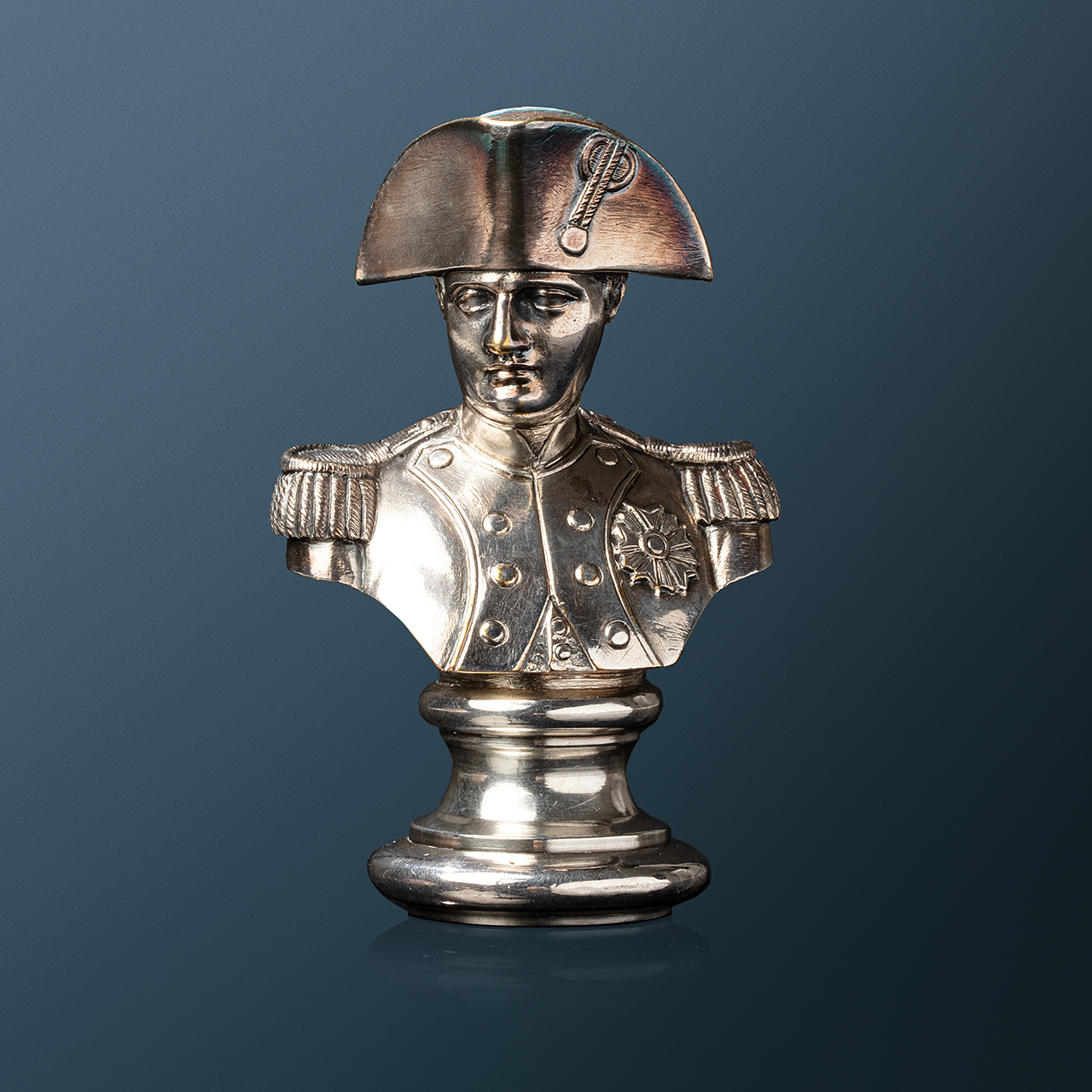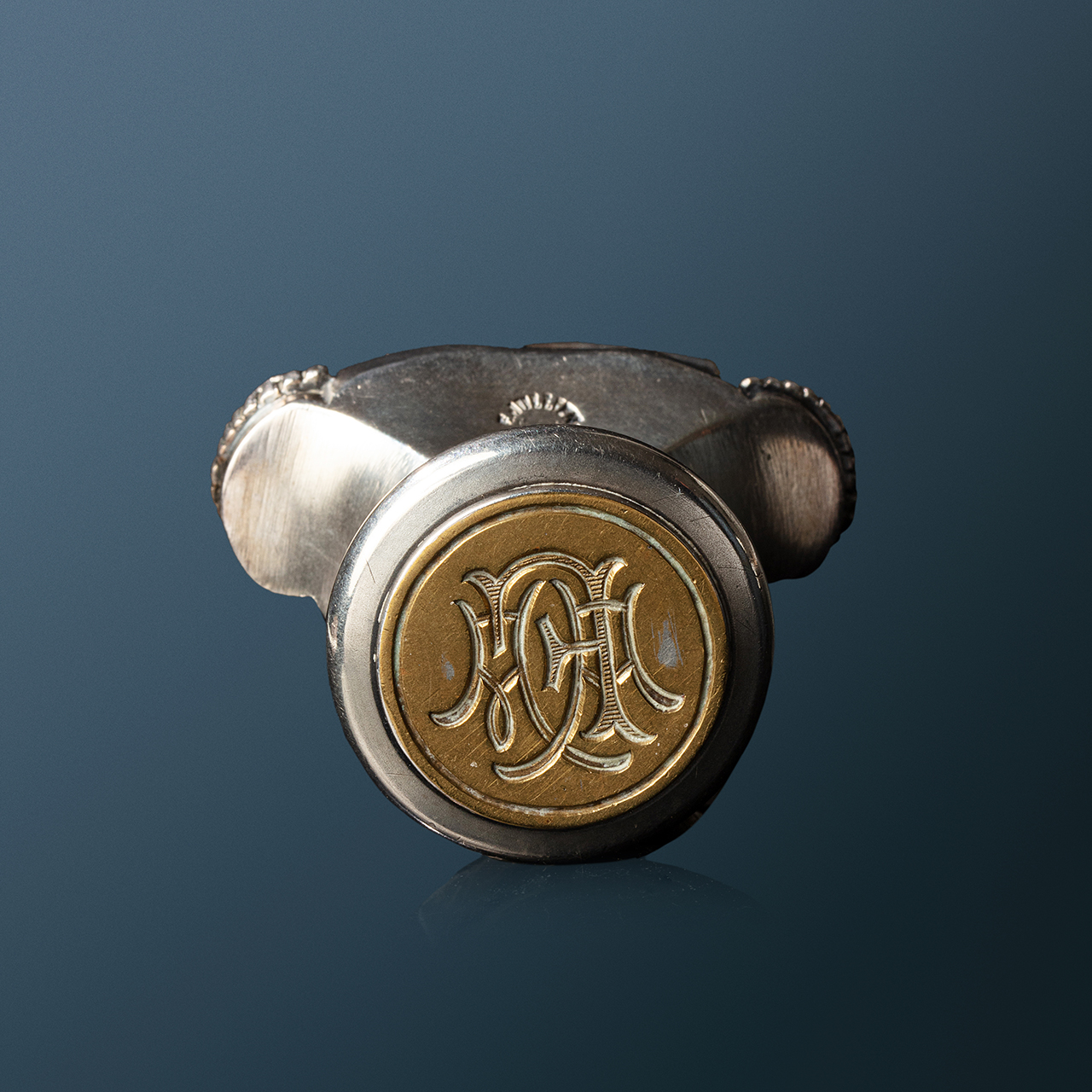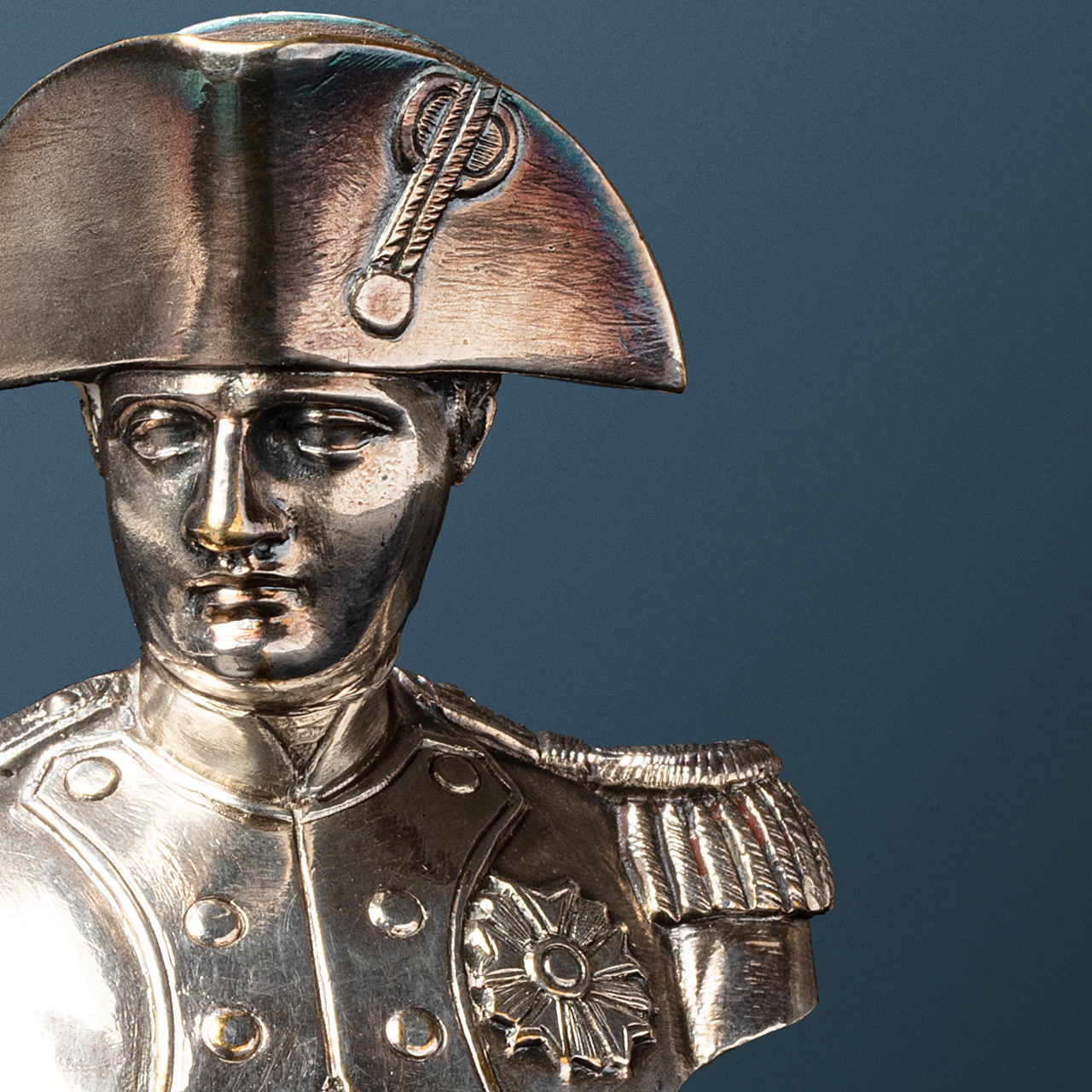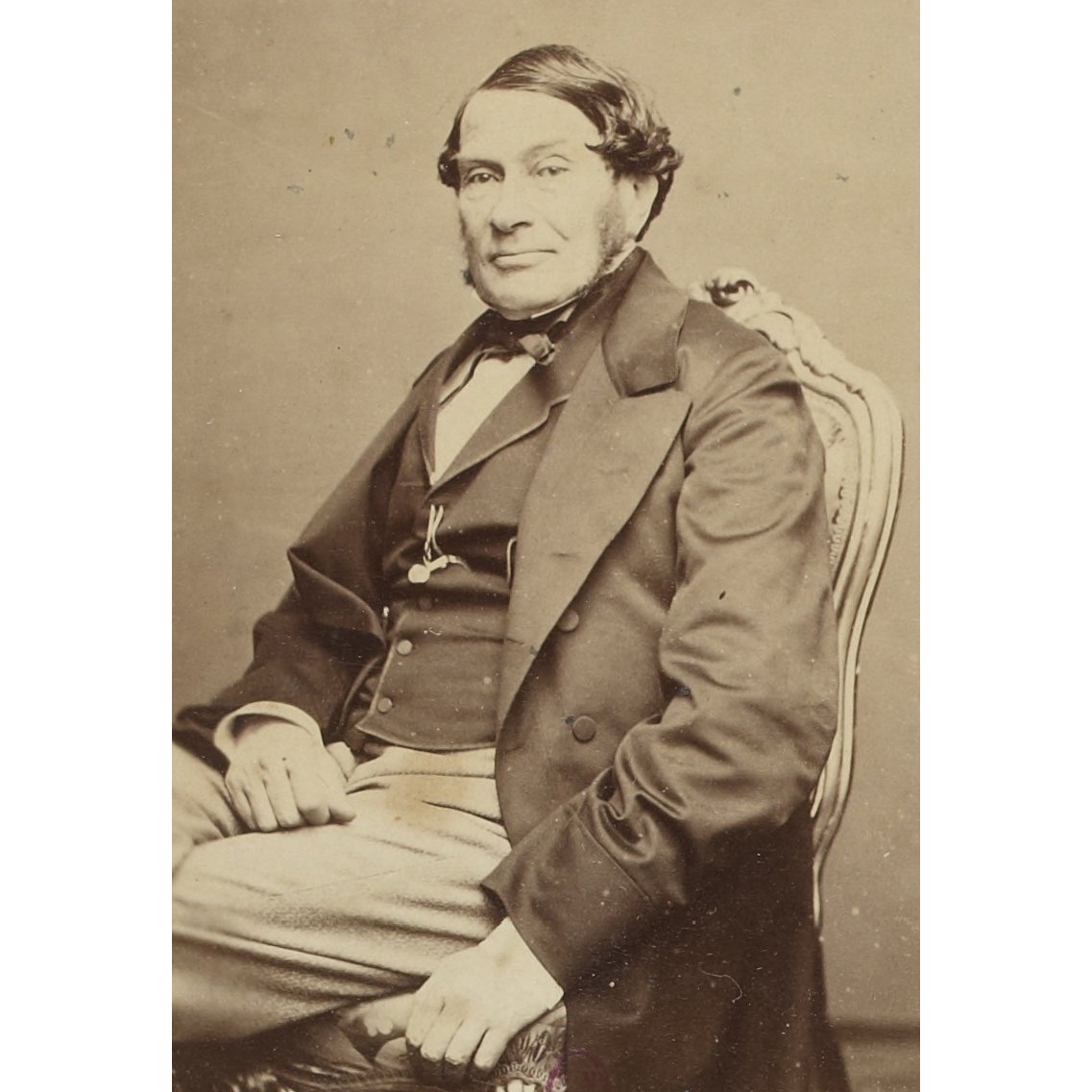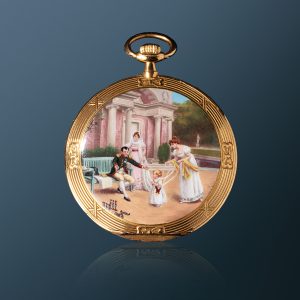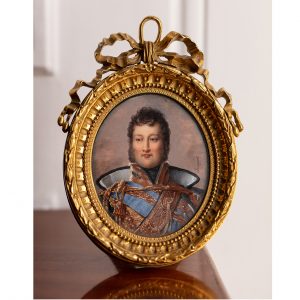Silvered bronze seal, in the shape of a bust of the Emperor Napoleon Ist in uniform wearing his cocked hat and his Order of the Legion of Honor, the round seal in gilded bronze engraved with an intaglio of a double A interlaced with an F for Achille Fould.
Very good condition.
Second Empire period, circa 1850.
Stamp on the back of the founder "E. Jullien / rue Pasquier".
H. 6,1 cm.
Achille Marcus FOULD (1800-1867), Minister of Finance then Minister of State to Emperor Napoleon III.
Achille Marcus FOULD (1800-1867), from an illustrious banking family. He was first general councilor for Tarbes in 1839, deputy for Hautes-Pyrénées in 1842, deputy for the Seine in 1848, then Minister of Finance for the Second Republic and the Second Empire under Louis-Napoleon Bonaparte, between 1849 and 1867 Achille Fould is the founder in 1852 with the Pereire brothers of Crédit Mobilier, which marks the rise of financial innovations launched by the major investment banks of the second industrial revolution in France. Very liberal with the banking world from his ministry under the Second Republic, he encouraged the development of these financial exchanges and speculation under the Second Empire. He opposes income tax plans and pursues a fiscal policy aimed at limiting spending. This is why he decides to reinstate the vote on the budget by section, and no longer by ministry. In 1861, he asked for the abolition of the possibility given to ministers to register additional credits without a vote.
He was finally Minister of State from 1852 to 1860 during the Second Empire. He then becomes the second character in the country after the Emperor and the necessary intermediary between ministers or assemblies, and the sovereign. His influence with Napoleon III and his rank as Minister of State enabled him to intervene in all areas of Second Empire politics, and in particular in that of economics and finance. He is notably in charge of the general administration of
income from the Crown and cultural institutions, which led him to direct the development of the Louvre.


